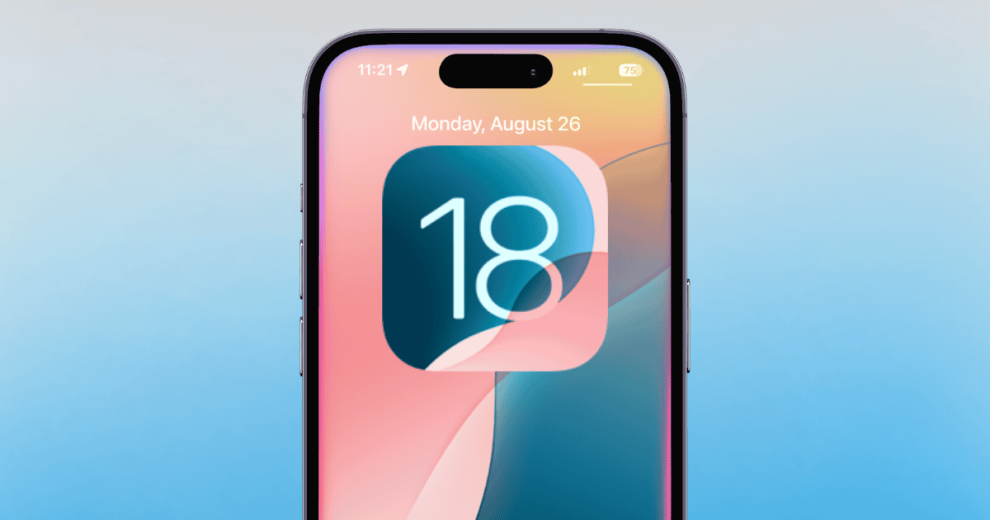A critical security flaw in Apple’s iOS 18 operating system was discovered to expose users’ passwords through the VoiceOver accessibility feature. This vulnerability, affecting millions of iPhone and iPad users worldwide, prompted Apple to quickly release a patch, urging users to update their devices immediately to iOS 18.0.1.
On October 1, 2024, reports began flooding social media platforms and tech forums about a bizarre and alarming occurrence: iPhones and iPads were suddenly reading out stored passwords aloud. The culprit? A bug in the newly introduced password app, working in conjunction with the VoiceOver accessibility feature.
I was in a crowded coffee shop when my iPhone suddenly started announcing my Facebook password,” recounts Sarah Chen, a graphic designer from San Francisco. “I’ve never felt so exposed. It was like my digital life was being broadcast to everyone around me.
Affected Devices and the Scope of the Problem
The security flaw wasn’t limited to a single device or model. Reports indicated that the vulnerability affected a wide range of Apple products, including:
– iPhone XS and newer models
– iPad Pro (all generations)
– iPad Air (3rd generation and newer)
– iPad (8th generation and newer)
– iPad mini (5th generation and newer)
John Smith, a cybersecurity expert at TechGuard Solutions, explains the gravity of the situation: “This bug essentially turned a helpful accessibility feature into a serious security risk. Anyone within earshot of an affected device could potentially gain access to sensitive account information.
The vulnerability stemmed from a flaw in the new password app introduced in iOS 18 and iPadOS 18. This app was designed to consolidate all saved passwords in one location, offering users a centralized hub for managing their login credentials securely.
The intention behind the password app was good,” notes Emma Rodriguez, a UX designer specializing in accessibility features. It was meant to simplify password management and enhance overall security. Unfortunately, the interaction with VoiceOver created this unforeseen vulnerability.”

Recognizing the severity of the issue, Apple’s security team worked around the clock to develop and release a fix. On October 3, 2024, just two days after the first reports emerged, Apple pushed out the iOS 18.0.1 update.
We take the security and privacy of our users extremely seriously,” stated an Apple spokesperson in a press release. “As soon as we became aware of the issue, our team worked tirelessly to develop and release a fix. We strongly encourage all users to update their devices to iOS 18.0.1 immediately.”
The update not only addressed the VoiceOver password leak but also fixed another concerning vulnerability. This secondary issue allowed audio recordings to be made on the new iPhone 16 models without activating the microphone display, raising additional privacy concerns.
In the wake of these security issues, a heated debate has erupted within the Apple user community. On platforms like Reddit, users are grappling with a difficult question: Is it better to update to iOS 18 now, or wait for potential bugs to be ironed out?
“I always wait a few weeks before updating to a major new iOS version,” shares Reddit user AppleFanatic22. “These early bugs can be a real headache, and I’d rather let others be the guinea pigs.”
On the other hand, cybersecurity experts strongly advise against delaying updates, especially when they address critical security flaws.
“The risks of not updating far outweigh any potential inconvenience,” warns Dr. Lisa Park, professor of Information Security at MIT. “Cybercriminals are quick to exploit known vulnerabilities. Delaying updates leaves your personal data exposed.
This incident serves as a stark reminder of the delicate balance between pushing technological boundaries and ensuring robust security measures. As devices become more interconnected and feature-rich, the potential attack surface for malicious actors expands.
It’s a constant cat-and-mouse game,” explains Mark Johnson, a software engineer at a leading tech firm. Companies like Apple are always trying to innovate and add new features, but each addition can potentially introduce new vulnerabilities. It’s crucial to have rigorous testing processes in place.”
Beyond the technical aspects, this security flaw has had a profound impact on users’ sense of digital safety and trust in technology.
I rely on my iPhone for everything – banking, social media, work emails,” says Michael Tran, a small business owner from Houston. “This incident has made me realize just how vulnerable we all are. It’s a wake-up call to take digital security more seriously.”
As Apple works to rebuild user trust in the wake of this incident, questions arise about the future of iOS security. Will this lead to more stringent testing procedures? How can companies balance the push for innovation with the need for rock-solid security?
Industry analysts predict that this incident may lead to changes in how major tech companies approach software updates and security testing.
I wouldn’t be surprised if we see Apple and other tech giants implementing more extensive beta testing periods and perhaps even bug bounty programs specifically for accessibility features,” speculates Sarah Wong, a tech industry analyst at GlobalTech Insights.
The iOS 18 VoiceOver security flaw serves as a powerful reminder of the importance of staying vigilant in our increasingly digital world. While companies like Apple work tirelessly to patch vulnerabilities, users must also play an active role in protecting their digital lives.
As we move forward, the lessons learned from this incident will likely shape the future of mobile operating system development and security practices. For now, the message is clear: stay informed, keep your devices updated, and never take your digital security for granted.
In an age where our smartphones hold the keys to our digital lives, incidents like these underscore the critical importance of robust security measures and prompt responses to vulnerabilities. As users, our best defense is to stay informed, update regularly, and always be mindful of the information we entrust to our devices.
















Add Comment